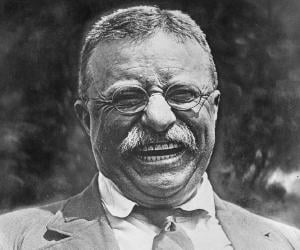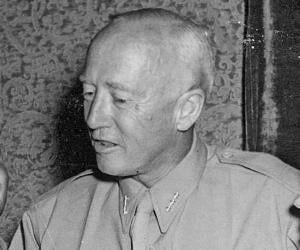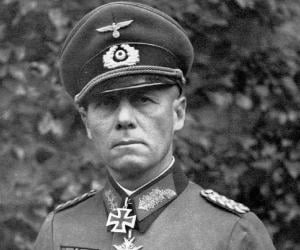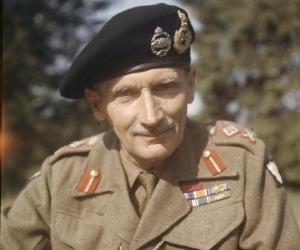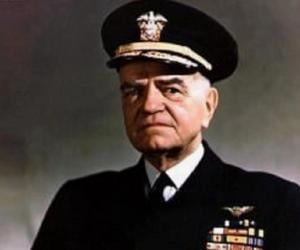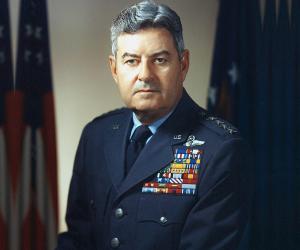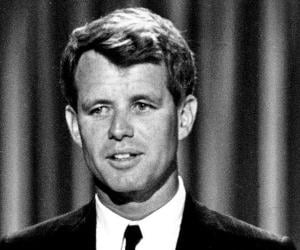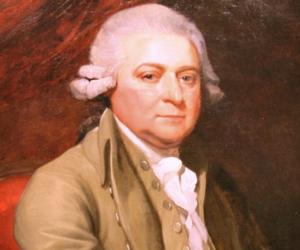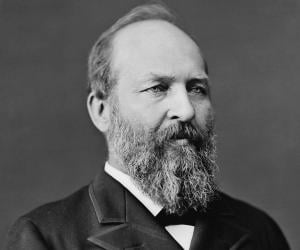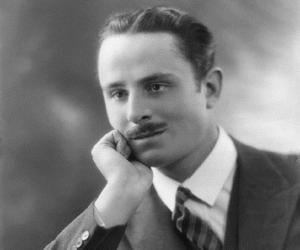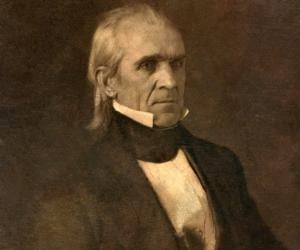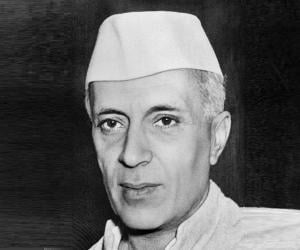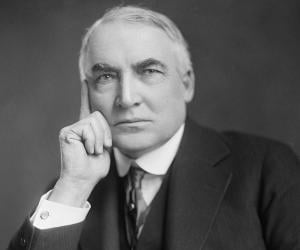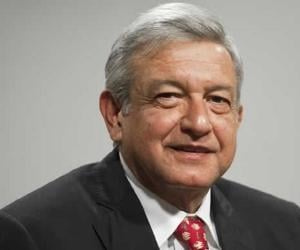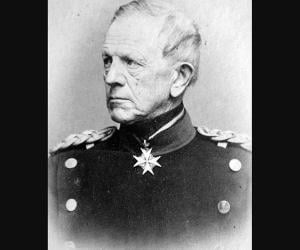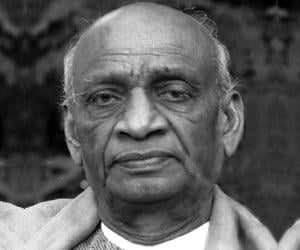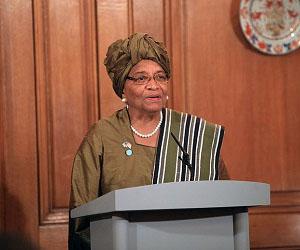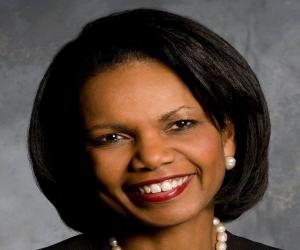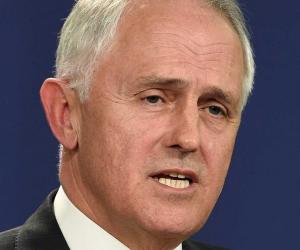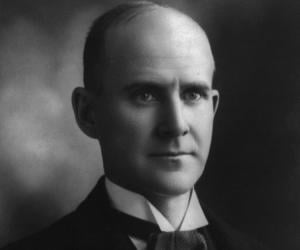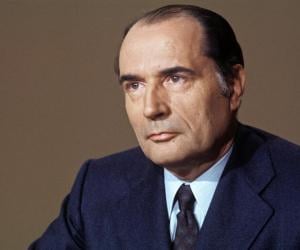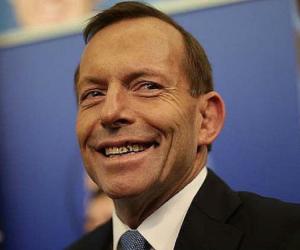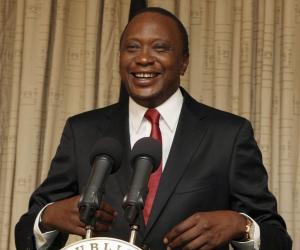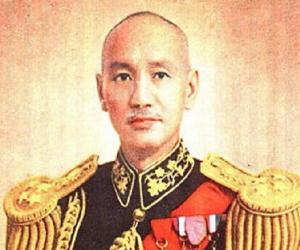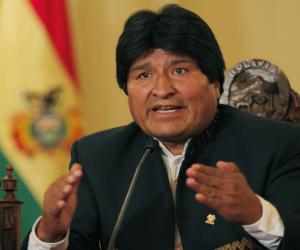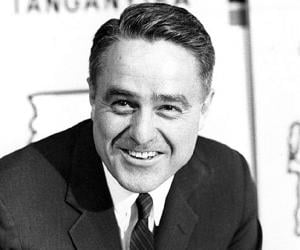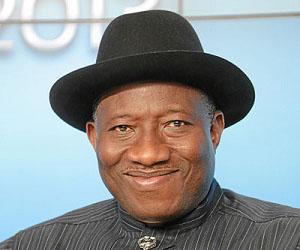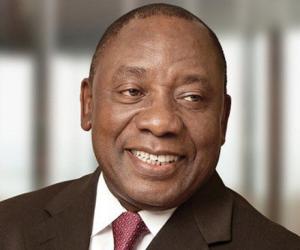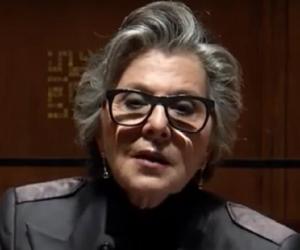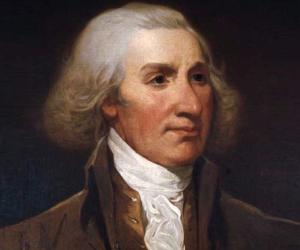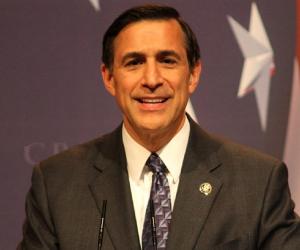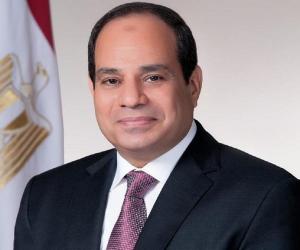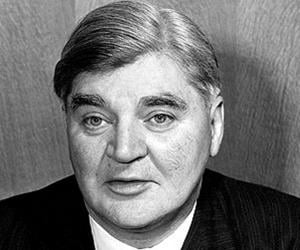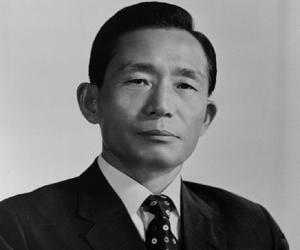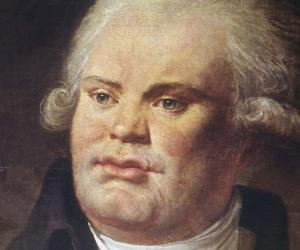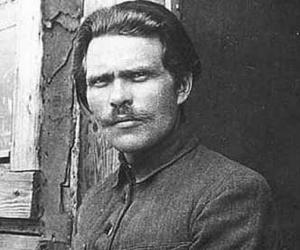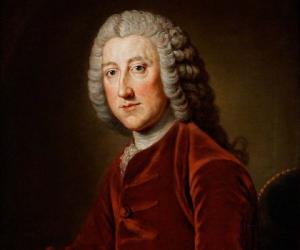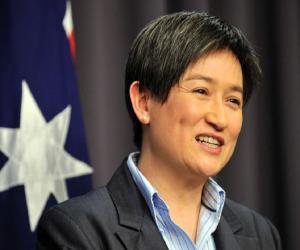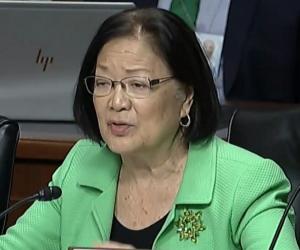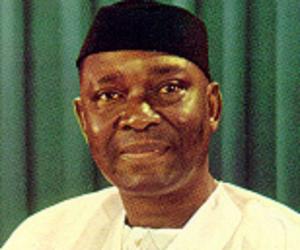The 26th president of the United States, Theodore Roosevelt is generally ranked as one of the five best presidents of the country. A man of many talents, he was a politician, conservationist, naturalist, and writer. He supported Progressive Era policies in the early 20th century and championed his "Square Deal" domestic policies.
George Patton was a general of the US Army, remembered for his work as a commander of the Seventh United States Army during World War II. He is also remembered for commanding the Third Army in the Western Front in June 1944 after the Allied invasion of Normandy. His life and work inspired the 1970 epic biographical war film Patton.
Known as The Desert Fox, Nazi field marshal Erwin Rommel led the Axis forces during World War II. For his plot to assassinate Hitler in 1944, he was given a choice to either commit suicide by consuming a cyanide pill or face a trial and execution. He chose the former.
Bernard Montgomery, 1st Viscount Montgomery of Alamein, was a British Army officer who played important roles in World War I, World War II, and the Irish War of Independence. He commanded the British Eighth Army during the Second World War and also oversaw the operations during the Battle of Normandy. Bernard Montgomery has a couple of statues dedicated to him.
Robert F Kennedy, the brother of the 35th US president John F Kennedy, was a politician who served as US Attorney General and as US Senator. He was known as a civil rights and human rights activist and fought against organised crime and the Mafia. He opposed America’s involvement in the Vietnam War. He was assassinated by a 24-year-old Palestinian.
One of the Founding Fathers of America, John Adams was a statesman, attorney, and diplomat who served as the second president of the United States. He was a principal leader of the American Revolution. As a lawyer, he was devoted to the right to counsel and presumption of innocence. His administration has been favorably ranked by historians and scholars.
The 20th president of the United States, James A. Garfield began his career as an attorney. Born into poverty, he struggled throughout his childhood and youth to become a respected lawyer. He eventually entered politics and rose through the ranks to be elected the president. Unfortunately, he was assassinated less than seven months after he took office.
The 11th president of the United States, James K. Polk was an advocate of Jacksonian democracy. He is credited with extending the territory of the US during the Mexican–American War. During his presidency, the US annexed the Mexican Cession, the Oregon Territory, and the Republic of Texas.
The third Prime Minister of India, Indira Gandhi served as PM from 1966 till 1977 and then again from 1980 till her assassination in October 1984. She is considered one of India’s strongest PM and is hailed for leading India to victory over Pakistan in 1971, which resulted in the creation of Bangladesh. However, she is also categorised as authoritarian and is criticised for imposing Emergency in 1975.
Jawaharlal Nehru was one of the central figures of the Indian independence movement along with personalities like Mahatma Gandhi. He became the first prime minister of India and left behind such a legacy that his direct descendants continue to play an important role in Indian politics.
The 29th President of the United States, Warren G. Harding assumed office in 1921 shortly after the end of WWI and became very popular. He died in 1923 while still in office. Later, various scandals that occured during his presidency were uncovered and his image suffered a serious setback. His presidency is today ranked amongst the worst in the American history.
Helmuth von Moltke the Elder was a Prussian field marshal who served as the chief of staff in the Royal Prussian Army for 30 years. Moltke, who commanded troops during Austro-Prussian War, Second Schleswig War, and the Franco-Prussian War, is credited with creating a new method of directing armies. He is also credited with pioneering the military usage of railways.
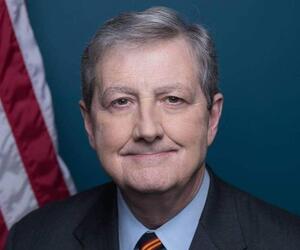

Finland’s 46th prime minister, Sanna Marin has also previously been the country’s minister of transport and communications. A Social Democratic Party member, she was dragged into a controversy after a video of her partying and dancing became viral in 2022, with critics accusing her of drug abuse.
Sardar Vallabhbhai Patel was an Indian politician who played an influential role in the Indian independence movement. Dubbed the Iron Man of India and Unifier of India, Sardar Patel played an important role in integrating various princely states into a united, independent nation. In 2018, the world's tallest statue called the Statue of Unity was dedicated to Sardar Vallabhbhai Patel.
Liberian politician, Ellen Johnson Sirleaf, served as the 24th President of Liberia from 2006 to 2018. She was the first elected female head of state in Africa. An alumnus of the Harvard University, she began her political career in the 1970s and rose through the ranks with time. She is the recipient of the 2011 Nobel Peace Prize.
The 66th United States Secretary of State Condoleezza Rice made history in 2005 when she became the first female black Secretary of State. She is also the first female to serve as National Security Advisor, a position which she served from 2001 to 2005. One of the most powerful women in the world at one point of time, she has been depicted in Hollywood films.
Malcolm Turnbull is a retired Australian politician. From 2015 to 2018, Turnbull served as the 29th prime minister of Australia. He also served as the leader of the Liberal Party on two occasions. For his service to the Parliament of Australia, Turnbull was awarded Companion of the Order of Australia during the 2021 Australia Day Honours.
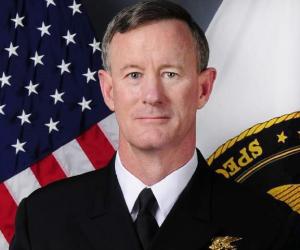
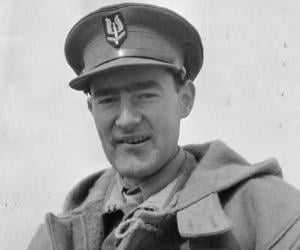
Scottish-born British Army officer David Stirling was known for his exploits in World War II, during which he formed and led the British Special Air Service (SAS). Following the war, he focused on combating racism in colonial Africa and even formed a foundation for animal conservation. He was knighted for his achievements.
Tony Abbott is a former politician who served as Australia's 28th prime minister from 2013 to 2015. Over the years, Abbott has had a major impact on society, thanks to his community service. He is an active volunteer for agencies and institutions like the New South Wales Rural Fire Service and Queenscliff's Surf Life Saving Club.
The incumbent Kenyan president Uhuru Kenyatta is the leader of the Jubilee Party of Kenya. Son of Kenya’s first president, Jomo Kenyatta, he was dragged into a controversy after sweeping the 2017 re-elections by winning 98% of the total votes. However, a Supreme Court ruling dismissed all charges against him.
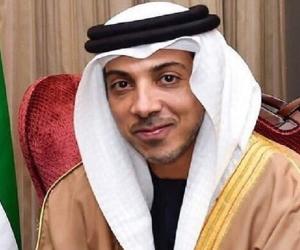
Chiang Kai-shek was a Chinese revolutionary who led the Republic of China between 1928 and 1975, first in mainland China until 1949 and later on in Taiwan until his death. He is credited with successfully leading the Northern Expedition against the Beiyang government, achieving Chinese unification. He was involved in a civil war with Communist Party of China, which he lost in 1949 and retreated to Taiwan.
Initially a teacher, Nigerian former president Goodluck Jonathan, boasts of a PhD in zoology and has also headed an oil-oriented government agency. He plunged into politics with the PDP, and his tenure as the president witnessed major acts of terror by the jihadist group Boko Haram.
Cyril Ramaphosa is a politician and the current president of South Africa. Also the president of South Africa's popular political party African National Congress (ANC), Ramaphosa played a key role during the nation's transition to democracy during which he served as ANC's chief negotiator. He also played a crucial role in ending apartheid and was considered Nelson Mandela's political heir.
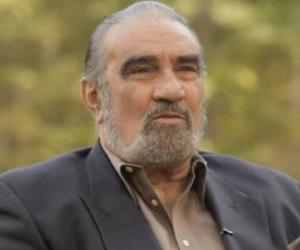
Born into a working-class family, Aneurin Bevan quit school at 13 to start working at a colliery. He later won a scholarship to study in London and rose to become a Labour MP. He led the ministries of labor and health, and the left-wing of the Labour Party, the Bevanites.
Park Chung-hee served as the president of South Korea from 1962 to 1979. He had also chaired the Supreme Council for National Reconstruction. As the leader of the South Korean army, he had launched the 1961 coup and established a dictatorship. He was assassinated by his close aide Kim Jae-gyu.
Georges Danton was a major figure in the early stages of the French Revolution. While many historians state that he played a key role in the establishment of the First French Republic, a few scholars refute this claim. He served as the first president of the Committee of Public Safety and was beheaded by the advocates of revolutionary terror.
Penny Wong is an Australian politician. She has been a senator for South Australia since 2002. Currently, she is leader of the opposition in the senate. She is a qualified lawyer and has previously worked as a political advisor. She is a member of the LGBTQAI+ community and played a key role in the legalization of same-sex marriage in Australia.
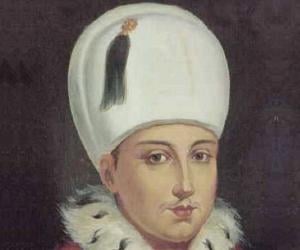
Osman II reigned as the Sultan of the Ottoman Empire from 1618 until his regicide in 1622. Despite becoming the emperor at the young age of 14, Osman II sought to exercise his powers as a ruler. Renowned for his bravery, Osman II led the Ottoman campaign against Sigismund III, the King of Poland, during the Moldavian Magnate Wars.
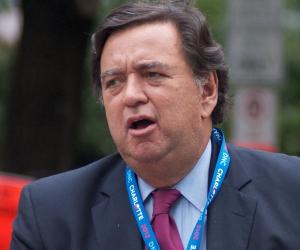
Benjamin Nnamdi Azikiwe was a Nigerian political leader and statesman. From 1963 to 1966, Azikiwe served as the first president of Nigeria. Often referred to as the Father of Nigerian Nationalism, Benjamin Nnamdi Azikiwe played an important role in Nigeria's struggle for independence. He is also credited with establishing the University of Nigeria (UNN).
